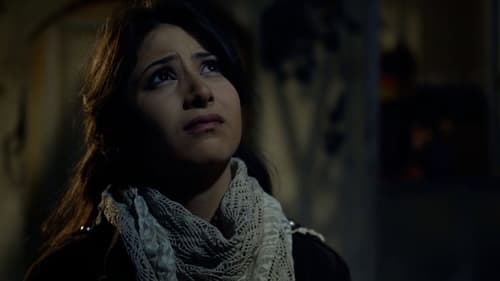Mohammad Malas
Nacimiento : 1945-01-01,
Historia
Mohammad Malas (Arabic: محمد ملص) (born 1945) is a prominent Syrian filmmaker. Malas directed several documentary and feature films that garnered international recognition. He is among the first auteur filmmakers in Syrian cinema.

Screenplay
A young aspiring actress in Syria discovers she has been inhabited by the soul of a woman who died on the day she was born.

Director
A young aspiring actress in Syria discovers she has been inhabited by the soul of a woman who died on the day she was born.

Self
Gérard Courant's "Filmed Diary" of December 14, 2011, produced in Dubai (United Arab Emirates). Between December 7 and 15, 2011, Gérard Courant was invited by the Dubai International Film Festival, in the United Arab Emirates. It was an opportunity for him to film many "Cinematons" of personalities from the Arab world and to continue his "Film Notebooks" from which he brought back 7 episodes.

Director
Suleiman, a 12-year old boy, lives overlooking Damascus with his poor family, along with many other displaced people from the Golan Heights. Suleiman decides with his mother and siblings to raise money by selling tissues to help his father, a gas cylinder seller. His dream? To buy a Suzuki pick-up truck of his own.

Writer
THEY KILLED THE SONG! Thirty-year-old Imane lives with her husband and three children in a modest house across from the historic citadel of Aleppo. She suddenly realizes that it's been ten years that she's been married, ten years during which she's done basically nothing more than take care of her husband and their three children.

Director
THEY KILLED THE SONG! Thirty-year-old Imane lives with her husband and three children in a modest house across from the historic citadel of Aleppo. She suddenly realizes that it's been ten years that she's been married, ten years during which she's done basically nothing more than take care of her husband and their three children.

Writer
In this documentary film, Malas explores the life and music of the classical Aleppan singer and composer Sabri Moudallal (1918-2006). "Maqam" is the melodic system of traditional Arabic music.

Director
In this documentary film, Malas explores the life and music of the classical Aleppan singer and composer Sabri Moudallal (1918-2006). "Maqam" is the melodic system of traditional Arabic music.

Director
Short documentary about political prisoners struggling to come to terms with haunting memories, produced for the anniversary of the Universal Declaration of Human Rights. The film presents a reflection on the effects of prison in general and on the theatre director Ghassan Jbaii in particular. The artist used his work to come to terms with his haunting memories and regain the world outside the prison walls.

Himself
A man recollects the conflict in the middle east through his personal memory. In this short documentary, Amiralay reflects on the first time he heard of Israel. Through recorded conversations with filmmaker Mohamed Malas, both Amiralay and Malas share their own unique stories and experiences about Israel and Israeli occupation. In the company of fellow Syrian filmmaker Mohammad Malas, the ground-breaking director Omar Amiralay revisits the ruins of the destroyed Golan village of Quneytra, occupied by Israel and then abandoned following the 1973 war.

Director
Fateh Moudarres (1922-1999) was a crucial personage in Syrian artistic and cultural life, a pioneer of contemporary painting, a literate and prolific novelist. For about forty years has transformed his atelier, located in the center of Damascus, into a place of encounter and dialogue on art. The film is a journey of love to the artist's universe, to his works composed from memories of light, colors, and the shadows of a painful existence.

Director
Trained as an electrician, Nazih Shahbandar became fascinated with the technology behind film production and was one of the pioneers of cinema production in the 1930s and 1940s. In 1947, he set up a studio fitted with film equipment that was almost entirely of his own fabrication. He wrote scripts, built sets, and innovated new methods of sound recording and transmission. As an enthusiastic inventor, he produced and directed the first Syrian film with sound. His dream was to film and screen a 3D film. An ode to cinema, this documentary is a portrait of Shahbandar.

Writer
An exploration the Arab-Israeli conflict as seen through the memories of a Syrian family as they return to the newly retaken city of Quneitra.

Director
An exploration the Arab-Israeli conflict as seen through the memories of a Syrian family as they return to the newly retaken city of Quneitra.

Writer
Interviews with Palestinians living in Lebanese refugee camps, some of it shot in Sabra and Shatila before the massacre.

Director
Interviews with Palestinians living in Lebanese refugee camps, some of it shot in Sabra and Shatila before the massacre.

Director
In the film that marks the emergence of auteur cinema in Syria, a young widow and her children are forced to move to Damascus, where the boys come of age against the backdrop of the military coups that punctuated the 1950s.

Director
The precise portrait of a woman who is present and fey at the same time, who is as tired as she is courageous and who seems to have surrendered and empancipated at once.

Director
Quneytra 74 begins with shots of people on the edge of the blasted city of Kuneitra. A woman breaks away from the crowd, makes her way towards the city, speeds up the step, as if to escape from the camera. Filmed on behalf of Syrian TV, the accuracy of Malas' light, shadow, silence and soundscape as essential elements of his cinematic language is evidenced here, as well as his interest in the issues of civil war, territorial war and identity destruction.






